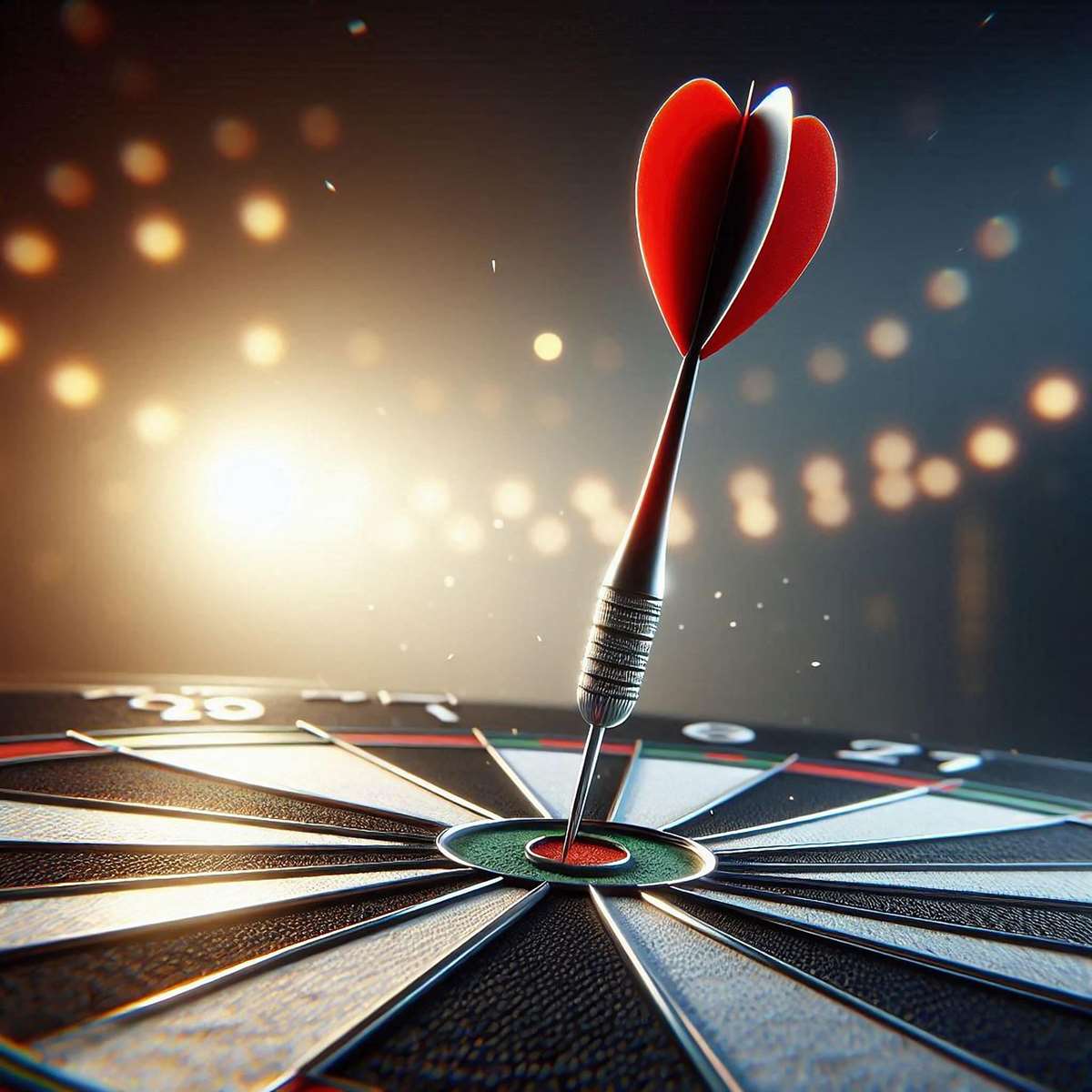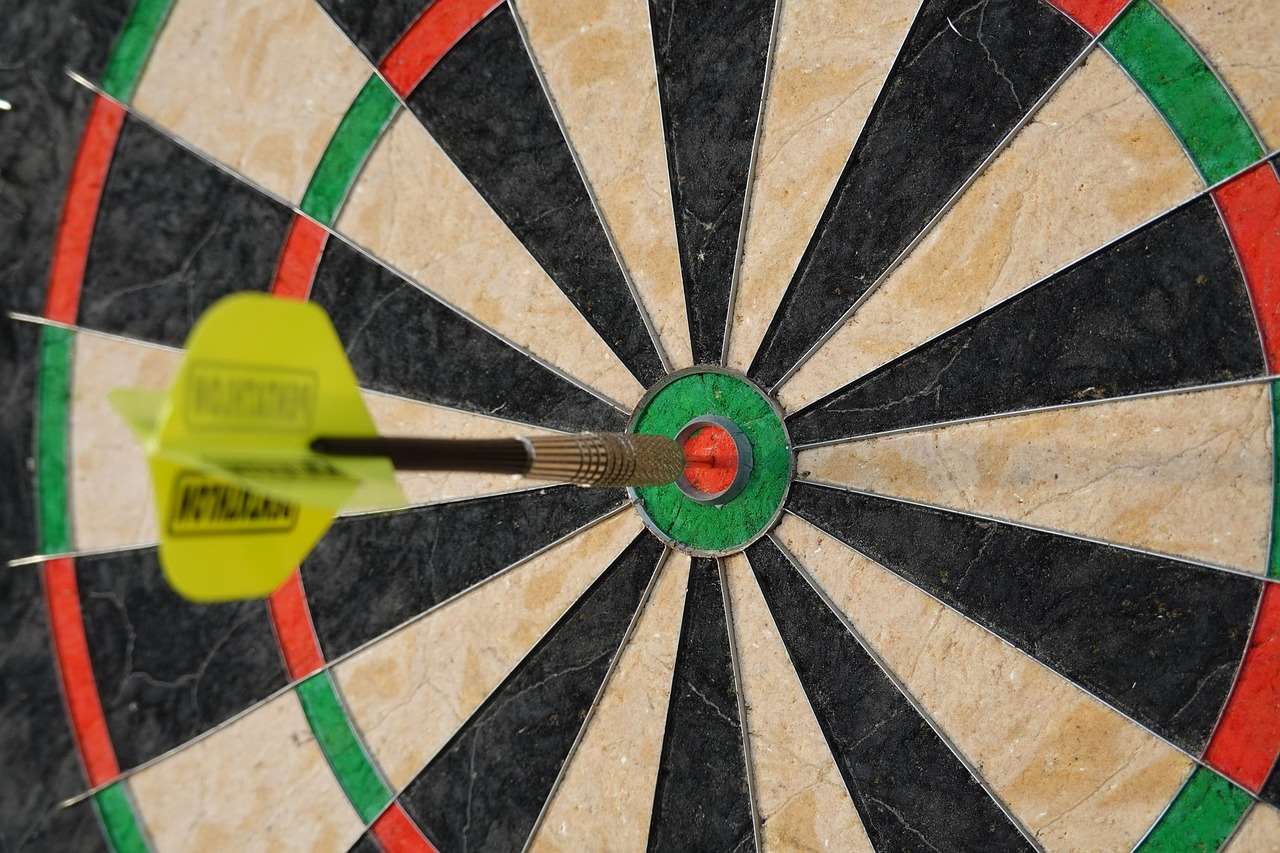Mastering the art of **checkout darts** is crucial for consistent success. This article will provide the key checkout numbers, strategies, and practice techniques to drastically improve your game, turning missed opportunities into confident finishes. We’ll also explore the mental game, common mistakes, and effective practice drills.
⚠️ Still Using Pen & Paper (or a Chalkboard)?! ⚠️
Step into the future! The Dart Counter App handles all the scoring, suggests checkouts, and tracks your stats automatically. It's easier than you think!
Try the Smart Dart Counter App FREE!Ready for an upgrade? Click above!
The Foundation: Understanding **Checkout Darts** Numbers
Before diving into complex strategies, it’s essential to memorize the most common **checkout darts** numbers. These are the scores you’ll frequently find yourself aiming for when closing out a leg. Knowing these inside and out will save you precious time at the oche and boost your confidence. A **basic checkout chart** typically focuses on numbers between 170 and 40.
Essential Single-Dart Checkouts
These are the ideal scenarios, setting you up for a two-dart finish or outright winning the leg:
- 161: T20, T17, D25 (Bull)
- 160: T20, T20, D20
- 157: T20, T19, D20
- 156: T20, T20, D18
- 155: T20, T19, D19
- 154: T20, T18, D20
- 153: T20, T19, D18
- 152: T20, T18, D19
- 151: T20, T17, D20
- 150: T20, T18, D18
- 149: T20, T19, D16
- 148: T20, T16, D20
- 147: T20, T17, D18
- 146: T20, T18, D16
- 145: T20, T15, D20
These require a triple, setting you up for a double on your next throw.
Mastering the Two-Dart Combinations for **Checkout Darts**
This is where strategy comes into play. What do you do if you miss the big treble? Knowing your two-dart outs from common scores is vital.
Examples:
- 81: T17, D15
- 85: T19, D14
- 96: T20, D18
- 99: T19, D21 (Rare but possible if leaving an odd number)

These combinations often involve hitting a treble to reduce the score to a manageable double.
Developing a **Checkout Darts** Strategy
Simply knowing the numbers isn’t enough. You need a strategy for setting up your **checkout darts**. This involves planning your shots to leave yourself on a favorable number.
The “160 Rule” and Its Implications
The “160 rule” suggests that if you’re above 160, aim for T20. If you hit it, you’re in a good position to set up a checkout. If you miss, you still likely have a score you can work with. This is a foundational concept when learning to **checkout darts**.
Knowing the rule of 160 is very valuable. However, as the game progresses, you need to deviate from it depending on your skill, as well as other external factors.
Prioritizing Even Numbers
Whenever possible, try to leave yourself on an even number. This allows you to aim for a double. Odd numbers can complicate things, as you’ll need to hit a single first.
Managing Pressure and Nerves
Nerves can significantly impact your ability to **checkout darts**. Techniques for managing pressure include deep breathing, visualization, and focusing on your pre-throw routine.
Effective Practice Drills for **Checkout Darts**
Repetition is key to mastering **checkout darts**. Incorporate these drills into your practice routine:
The “Round the Clock” Checkout Drill
Start at double 1 and attempt to hit every double around the board in sequence. This helps you become familiar with all the doubles and build accuracy.
The “170 to Bull” Challenge
Start with 170 and try to **checkout darts** using the optimal route (T20, T20, Bull). Repeat this until you can consistently achieve it.
The “Random Number” Generator
Use a random number generator to create a score between 40 and 170. Then, attempt to **checkout darts** using your knowledge of combinations.

Common Mistakes When Attempting to **Checkout Darts**
Avoiding common mistakes can significantly improve your checkout percentage.
Going Bust
A frequent error is accidentally going below zero or leaving yourself with one point. Always double-check your math before throwing.
Failing to Adjust After a Miss
If you miss your target, quickly reassess the situation and adjust your strategy for the next dart.
Ignoring the Opponent
Pay attention to your opponent’s score and potential checkouts. This can influence your strategy.
The Mental Game of **Checkout Darts**
Darts is as much a mental game as it is a physical one. Having a strong mental approach is crucial for consistent performance.
Visualization Techniques
Visualize yourself successfully **checkout darts** before each throw. This can boost your confidence and improve your accuracy.
Dealing with Setbacks
Don’t let missed opportunities derail your focus. Learn from your mistakes and move on to the next throw. Acknowledge you can’t always hit the target but continue to try and improve!
Maintaining Composure
Stay calm and focused, even under pressure. Deep breathing and positive self-talk can help maintain composure. There are lots of **darts training** exercises, but they can only work if you remain composed and relaxed.
Advanced **Checkout Darts** Techniques
Once you’ve mastered the basics, you can explore more advanced strategies.
Calculating Probabilities
Some players calculate the probabilities of hitting certain targets and choose the option with the highest chance of success.
Using Break Shots
A “break shot” is a strategic throw designed to disrupt your opponent’s rhythm or set up a more favorable checkout for yourself. Consider where your darts throw is landing consistently.
Understanding Opponent Strategy
Analyzing your opponent’s strategy can help you predict their moves and plan your own accordingly. This may mean trying to leave a difficult finish to put them under pressure.

Leveraging Technology for **Checkout Darts** Practice
Modern technology can be a valuable tool for improving your **checkout darts** skills. There are now several **darts scoreboard apk download** options.
Dart Scoring Apps
Apps like Free dart score app can track your progress, provide checkout suggestions, and analyze your performance.
Online Training Resources
Numerous websites and online communities offer tips, tutorials, and practice drills for improving your **checkout darts** game.
Video Analysis
Recording and analyzing your throws can help you identify areas for improvement. Watching footage of professional players can also provide valuable insights.
Choosing the Right Equipment for **Checkout Darts**
The right equipment can make a difference in your performance. Finding **darts shaft short** and perfectly balanced darts can really improve consistency.
Dart Weight and Material
Experiment with different dart weights and materials to find what feels most comfortable and suits your throwing style.
Dartboard Quality
Invest in a high-quality dartboard for optimal scoring and durability. The use of dart board floor protection is recommended to prolong the lifespan of your board.
Flights and Stems
Experiment with different flights and stems to fine-tune the aerodynamics of your darts.
Adapting Your Strategy to Different Game Formats
The best strategy for **checkout darts** can vary depending on the game format.
501
In 501, you start with 501 points and must reach zero by hitting doubles. The standard game of **darts match play today** generally uses this format.
Cricket
Cricket is a more complex game format that involves closing out numbers and scoring points.
Around the World
Around the world tests your ability to hit each number on the board in sequence.

**Checkout Darts**: Integrating Double-Out Strategies
A crucial element of successful **checkout darts** is mastering the “double-out” strategy. This refers to finishing the game by hitting a double. Failing to do so leaves your score stranded, giving your opponent an advantage. What does dart double out nedir?
The Importance of Leaving a Double
Always strive to set yourself up for a double on your final throw. This requires careful planning and precise calculations. Consider a free dart scorer vs computer to help with your strategy. When you practice your double-out strategy you’ll find it’s important to dartcounter camera.connect and see how your consistency is. You could even invite darts travellers visit for a friendly competition.
Common Double-Out Combinations
Familiarize yourself with common double-out combinations, such as double 20 (40), double 16 (32), and double 10 (20). Practicing these regularly will increase your chances of success.
Dealing with Unfavorable Double-Out Situations
Sometimes, you may find yourself in a situation where leaving a double is challenging. In such cases, prioritize reducing your score to a manageable number and then setting up the double on your next throw.

Conclusion: Mastering the Art of **Checkout Darts**
Mastering **checkout darts** is a journey that requires dedication, practice, and a strategic mindset. By understanding the key numbers, developing a plan, and incorporating effective practice drills, you can significantly improve your ability to finish legs consistently. Remember to manage your nerves, adapt your strategy to different game formats, and leverage technology to track your progress. With perseverance, you’ll become a more confident and successful darts player. Now, go practice those checkouts and start winning more legs!
Hi, I’m Dieter, and I created Dartcounter (Dartcounterapp.com). My motivation wasn’t being a darts expert – quite the opposite! When I first started playing, I loved the game but found keeping accurate scores and tracking stats difficult and distracting.
I figured I couldn’t be the only one struggling with this. So, I decided to build a solution: an easy-to-use application that everyone, no matter their experience level, could use to manage scoring effortlessly.
My goal for Dartcounter was simple: let the app handle the numbers – the scoring, the averages, the stats, even checkout suggestions – so players could focus purely on their throw and enjoying the game. It began as a way to solve my own beginner’s problem, and I’m thrilled it has grown into a helpful tool for the wider darts community.